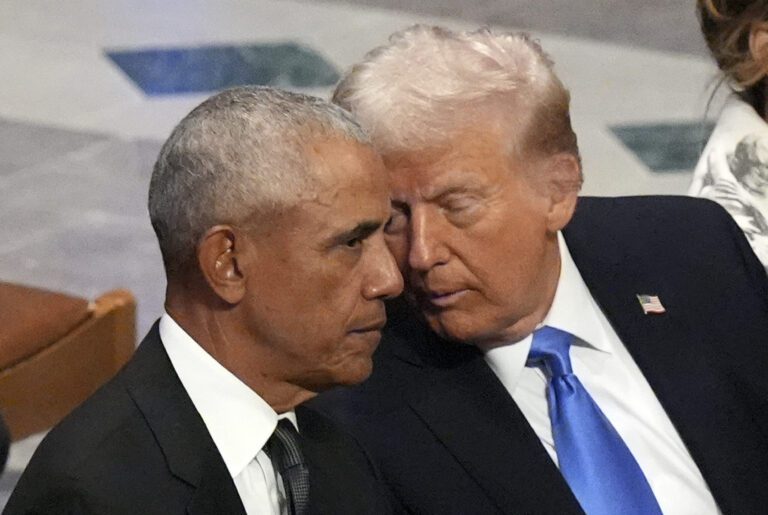Obama Denies Allegations of Collusion Narrative
Former President Barack Obama has emphatically rejected claims that he was the “ringleader” behind the debunked allegations of Russian collusion during the 2016 presidential campaign.
Background on Collusion Allegations
The accusations surfaced following statements made by former President Donald Trump. On a recent occasion, Trump suggested that both Obama and current President Joe Biden should face charges for supposedly fabricating the narrative of collusion with Russian operatives.
Key Points:
- Trump’s Claims: Trump asserted that Obama initiated the Russian collusion narrative and implicated other officials, including Biden, former FBI Director James Comey, and former Director of National Intelligence James Clapper.
- Consequences of Allegations: If true, these claims could significantly impact the perceptions of political integrity in both the current and previous administrations.
Obama’s Response
In a rare public statement, Obama’s spokesman, Patrick Rodenbush, addressed the allegations. He stated:
“Out of respect for the office of the presidency, our office does not normally dignify the constant nonsense and misinformation flowing out of this White House with a response. But these claims are outrageous enough to merit one.”
Key Aspects of Obama’s Statement:
- Call for Accuracy: Rodenbush described the allegations as “bizarre” and an ineffective distraction.
- Affirmation of Past Findings: He emphasized that recent intelligence documents do not refute that Russia sought to interfere with the election.
Noteworthy Findings:
- The Director of National Intelligence’s recent documents highlighted that while Russia attempted to influence the election, they did not manipulate any vote counts.
- A bipartisan Senate Intelligence Committee report from 2020, led by Senator Marco Rubio, reaffirmed these conclusions.
Tulsi Gabbard’s Declassification
The controversy intensified when Tulsi Gabbard declassified documents claiming to provide “overwhelming evidence” of politicization of intelligence by the Obama administration.
Highlights from Gabbard’s Press Release:
- She noted that the Intelligence Community reportedly assessed that Russia "probably was not trying to influence the election by using cyber means."
- The press release claimed that while there were concerns about potential cyber attacks, there was no direct threat to voting machines or vote count manipulation.
Intelligence Assessments
After meeting with top aides in December 2016 to discuss Russian interference, the Obama administration released an assessment stating that:
“Russian President Vladimir Putin ordered an influence campaign in 2016 aimed at the US presidential election.”
Russia’s Aims Included:
- Undermining public faith in the US democratic process.
- Diminishing the electability of then-candidate Hillary Clinton.
Congressional Insights
Senator Mark Warner, the vice chairman of the Senate Intelligence Committee, stated that their report found that Russia indeed utilized social media as part of an information warfare campaign during the election.
Conclusion
As the allegations surrounding the Russian collusion narrative continue to unfold, the back-and-forth between Trump and Obama raises critical questions regarding accountability and the integrity of political discourse.
For more details on the intelligence assessments, refer to the Senate Intelligence Committee Report.
This ongoing dialogue not only shapes historical narratives but also influences public perception of trust in political institutions.


